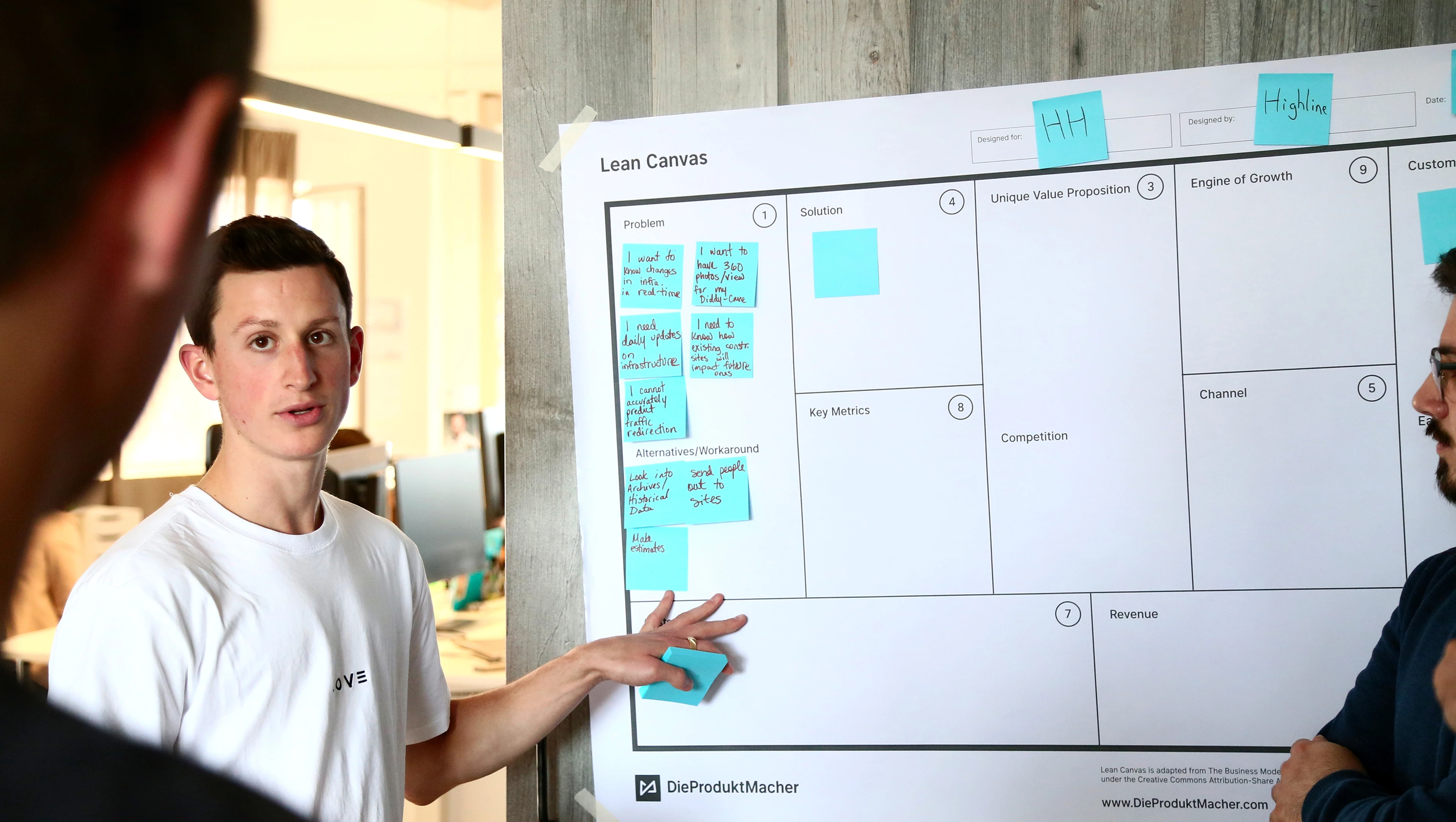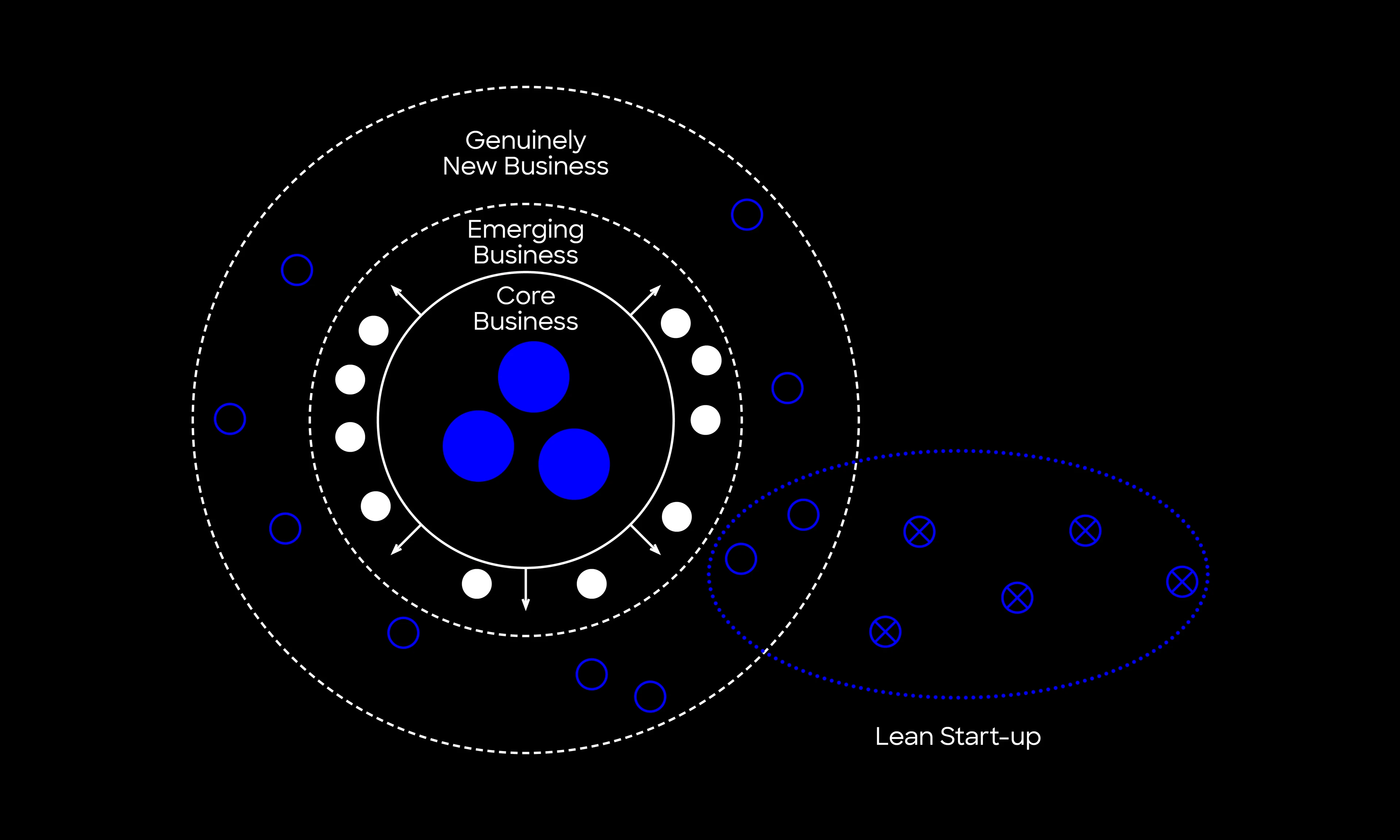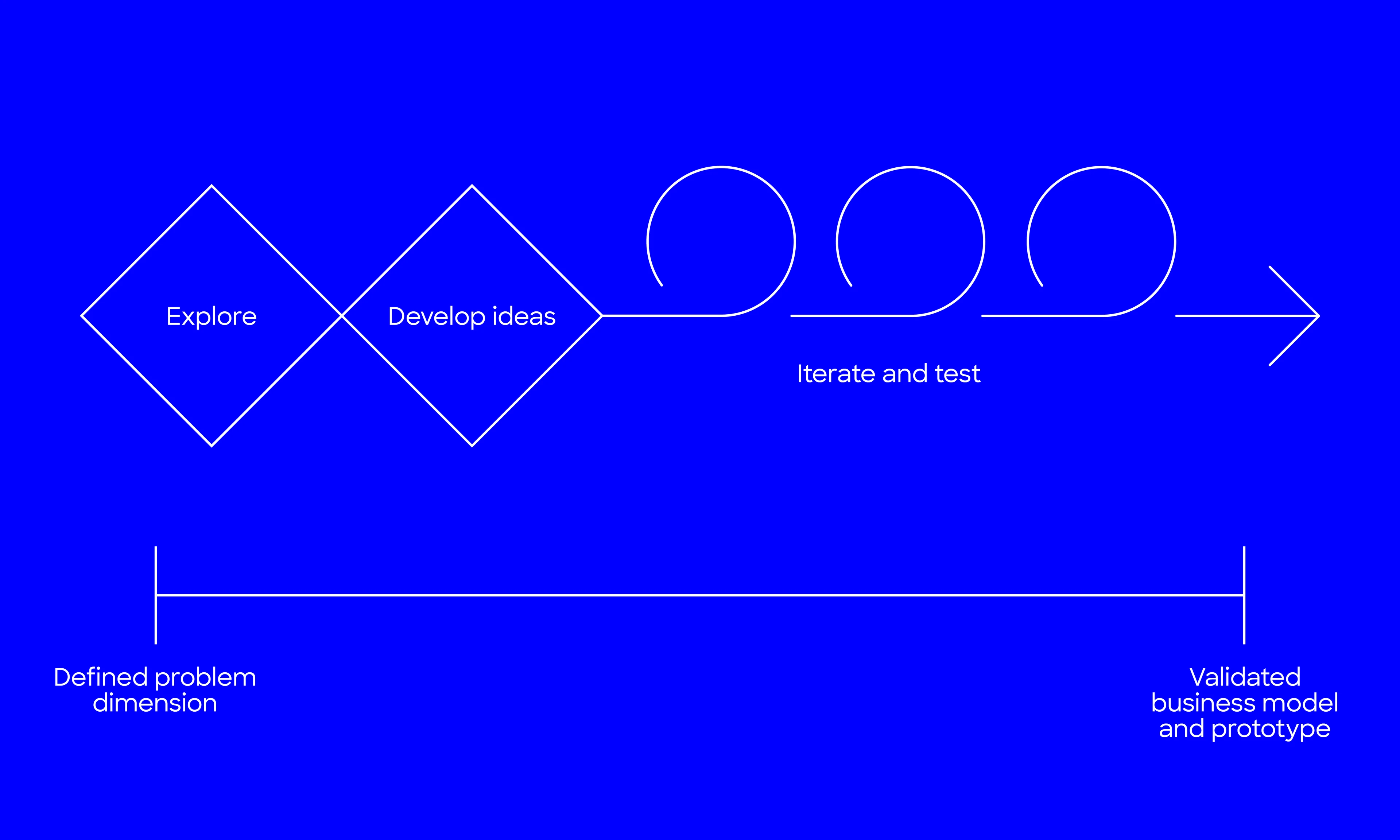 © Digital Product School
© Digital Product SchoolA German economy without SMEs? Unthinkable. But innovation mostly happens in small steps - not enough to secure tomorrow's business. We asked Lorenz Hutterer, Product Lead at the Digital Business Lab by UnternehmerTUM, how to take leaps instead and what we can learn from the most successful start-ups on the planet. Read on!
Why New Development Is a Must
Middle-sized companies know what they're doing. German SMEs that are owned and led by the same people are internationally recognized and among the world leaders in their specialist field. Technologically, they evolve. But when it comes to innovation, their steps are often small and radical changes are rare. New features, adaptations, and trends are all fine - but what companies need nowadays is more than that.
Business models of the future will increasingly contain digital elements. That's why it is crucial for SMEs to build up their internal competency accordingly.
Dr. Christian Schröder, Project Coordinator at IfM Bonn
The Institute for SME Research (IfM) highlights the following challenges for middle-sized companies:
- digital features are essential for tomorrow's business opportunities
- international enterprises and start-ups with an agile approach are competing with national offers
- digital qualifications are needed internally and should not be compensated with external services only
- the company culture has to support future-forward activities
The team at the Digital Business Lab (DBL) knows: the digital future is open to everyone and the route to it faster than many think - with the right set-up.
Outside the Box
Markets and trends are moving at a faster pace today, new marketplaces emerge. As an abbreviation, "VUCA" characterizes the current state we're in:
- volatility - our environment is unstable, unexpected changes happen
- uncertainty - it's hard to predict the future
- complexity - there are many interconnections and variables
- ambiguity - clear interpretations are hard to make
To develop new products in a usual process may take years - too slow for a world where emerging phenomenons quickly become the new normal, where products win the market in a rush, and ideas from five years ago are redundant today. The way to go: Not setting up the perfect plan but experimenting outside the box, too.
To keep up, SMEs have to adjust their way of working and ensure that potentials can be taken advantage of. Up to now, evolution in German companies often takes place in a silo. The image below shows: there's 1) the core business, 2) emerging business, and 3) new disruptive opportunities.

Traditionally, innovation in SMEs takes place in the first and second areas. Which makes it unlikely to discover potentially profitable opportunities in the third area. As a consequence, newcomers may shoot past them in today's dynamics.
Today, conservative processes of product development are no longer effective. We need courage and the discovery of new opportunities.
Lorenz Hutterer, Product Lead at the Digital Business Lab
Here, we can learn from globally successful ventures: the "Lean Start-ups" - young companies that work with slim and agile processes, operate in the circle on the right. They benefit from quickly exploiting market opportunities. Many of them - Airbnb, Uber, and Zalando, for example - were founded in times of crisis. Fast and ever-adapting, they are capable to shine in today's world of 'VUCA'.
"Cycling" towards Market Success
Successful innovations outside of core business call for another process. Here, we can put to practice the "Lean Start-up" approach, introduced by Eric Ries: It's been tried and tested in many applications, and even established organizations can leverage it.

In the Digital Business Lab, we use best practices of the Lean Start-up approach or lean product development. That is to say that we create the finished product in cycles and through efficient processes. The difference to traditional innovation is:
- Gaining an understanding of the problem: Our linchpin is the user group - not our own ideas. The first step includes understanding them, their challenges, and their needs.
- Developing ideas: We find solutions that generate a tangible added value for the user. This ensures that our product is relevant and offers the "problem-solution fit".
- Iterating and testing: Instead of strictly following a product vision that may fail on the market, we test and validate during its development. In this context, "lean" means to build a prototype from first ideas and with very simple means. Users will interact with it before an investment of extended resources flows into its implementation - thus facilitating a judgment of whether this approach makes sense after all. With user feedback, we continue to develop: Are elements easy to interpret on the digital interface? Is the next step clear?
The result: products and services with an apparent added value that are fun to use. To develop the agile way however, it takes the right methods and circumstances. Which ones? Find out in part 2: Digital Development for SMEs - Part 2: Success Factors.
You can learn more about the Digital Business Lab here.
















